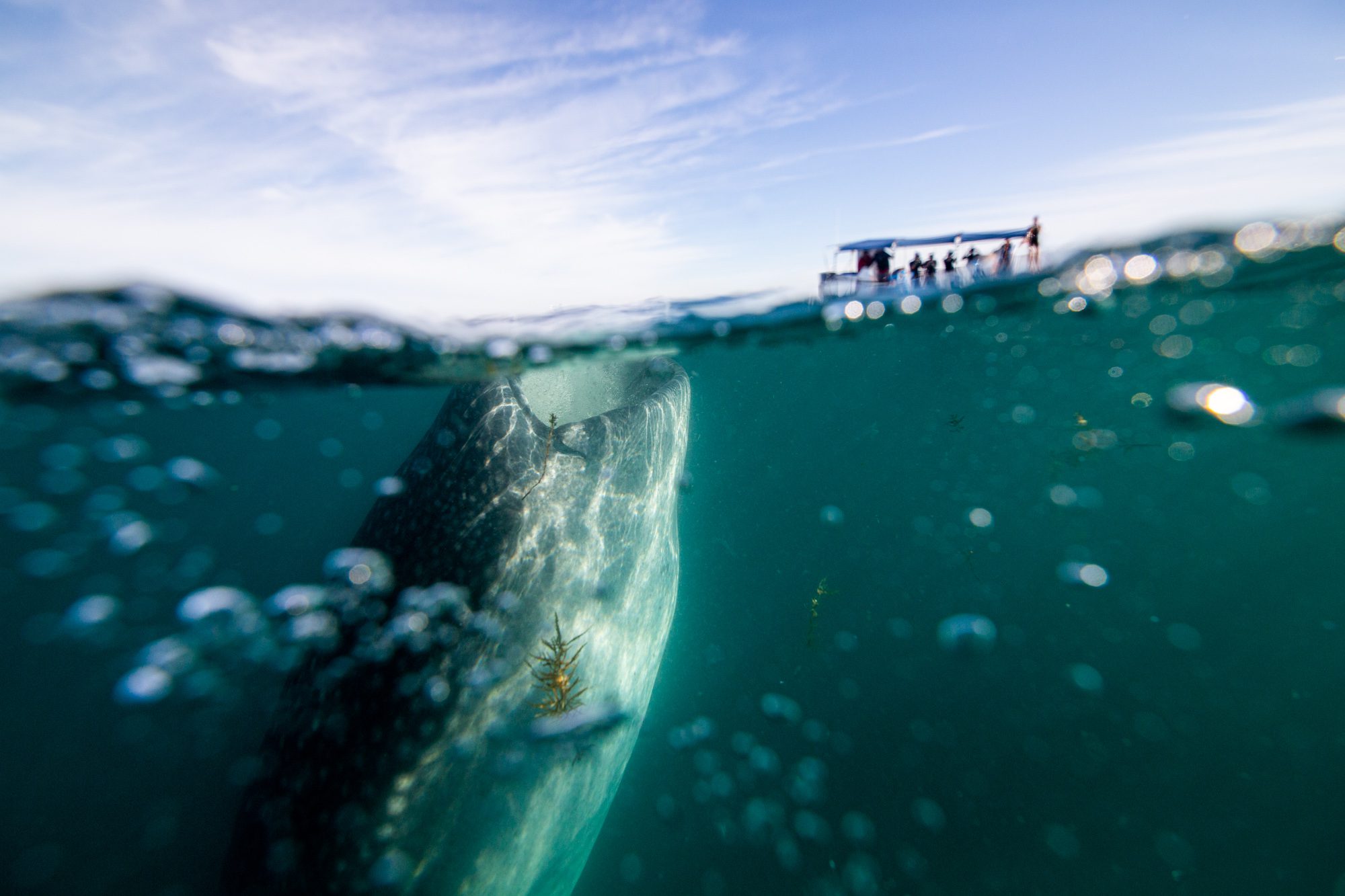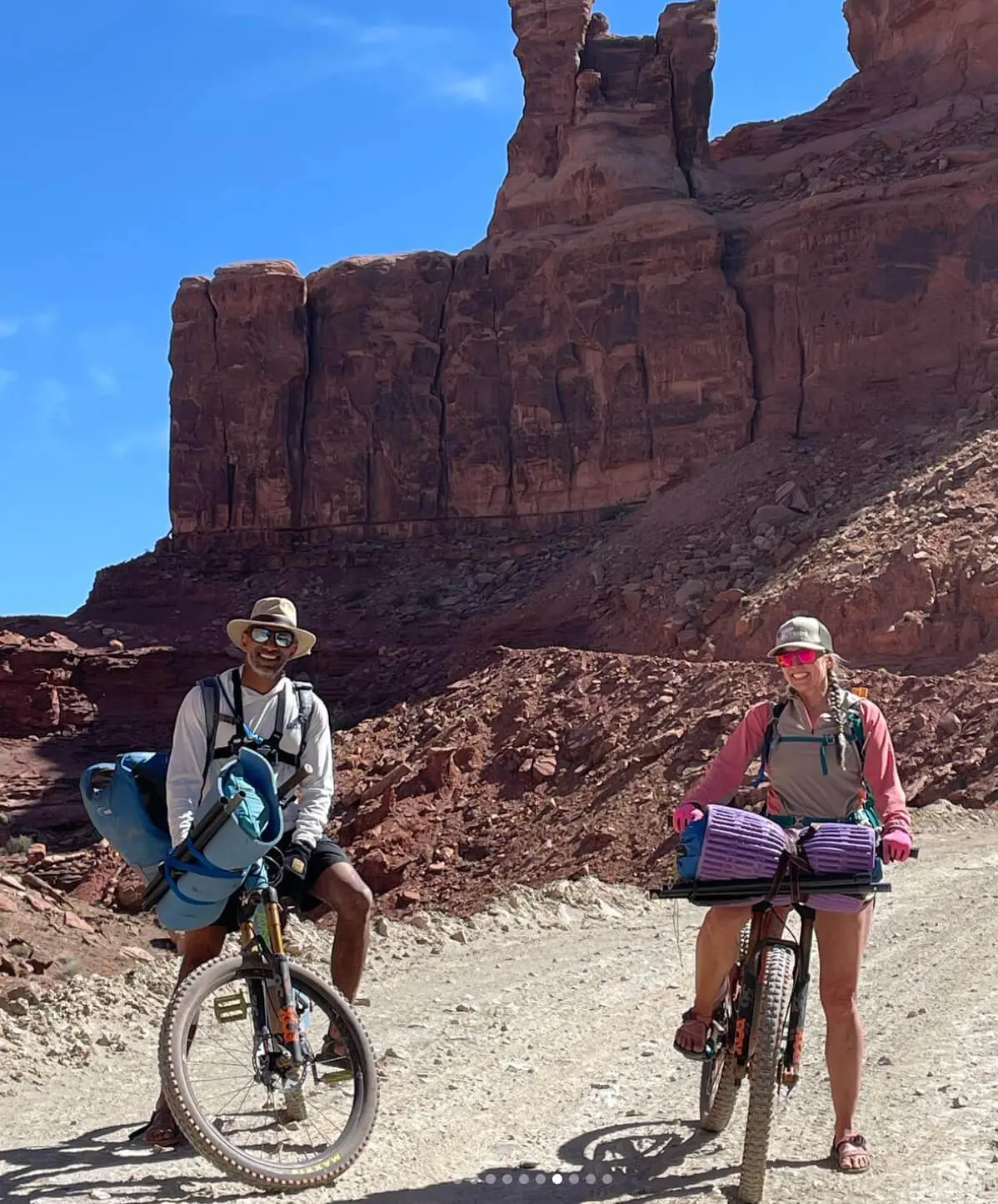Swim with Whale Sharks in La Paz
The peninsula of Baja, Mexico holds many wonders. It’s location on the Sea of Cortez, or the “Aquarium of the World”, a nickname given by the famous explorer Jacques Cousteau, means it hosts an incredible variety of marine life. When we heard that whale sharks were one of the fascinating species that visit the waters of La Paz each winter, and there are opportunities to swim with them, we knew we had to learn more. We are typically cautious with wildlife tours, because we know that sadly, some of these experiences have a negative impact on wild animals. So we did some research into the guidelines and rules around the adventure, and sought out recommendations on the best guides for ensuring a minimal impact on these majestic and gentle creatures.
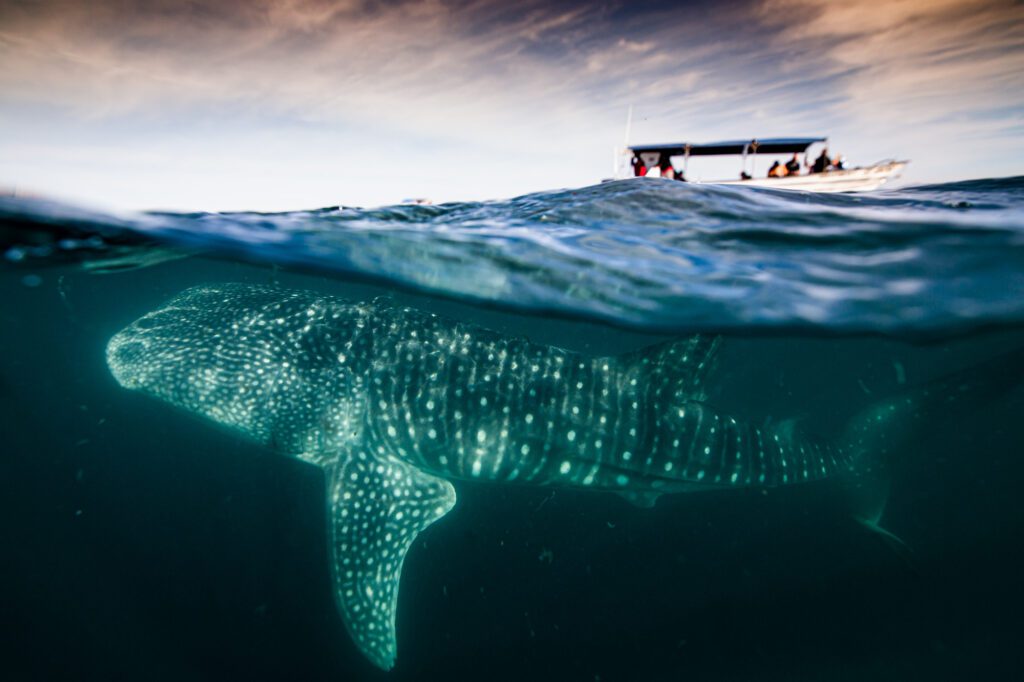
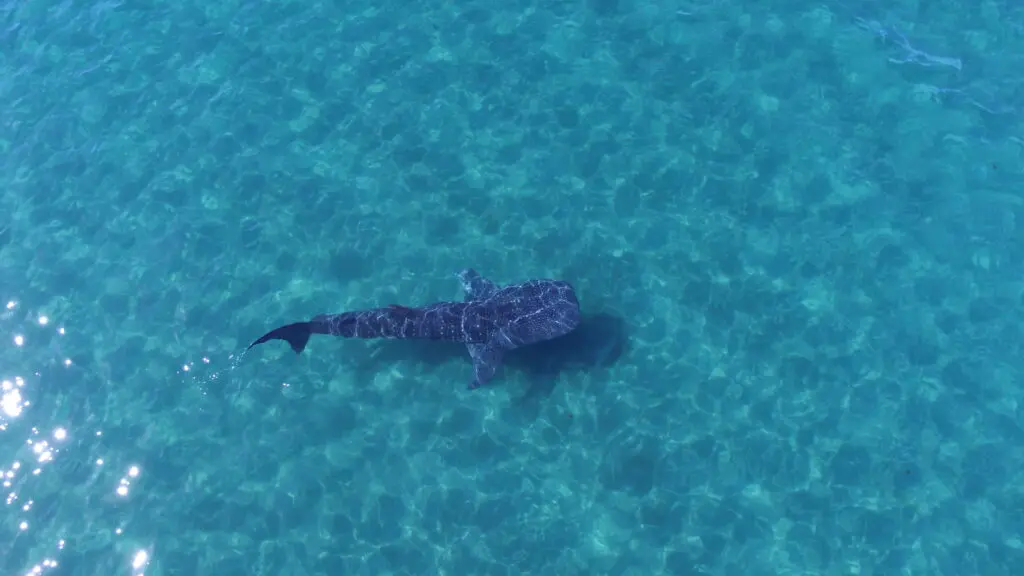
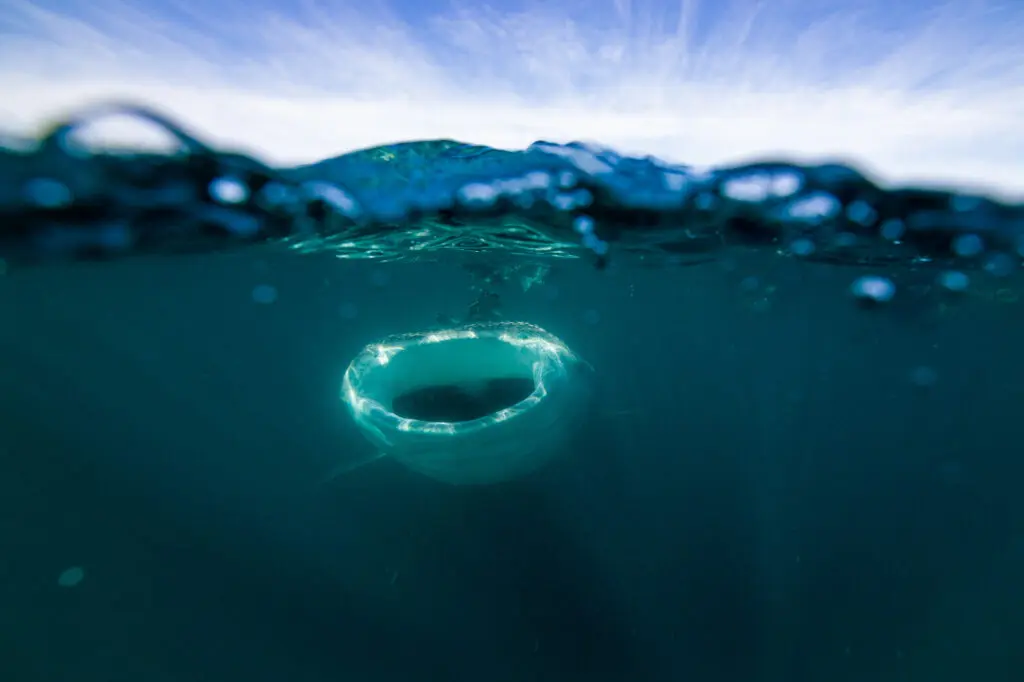
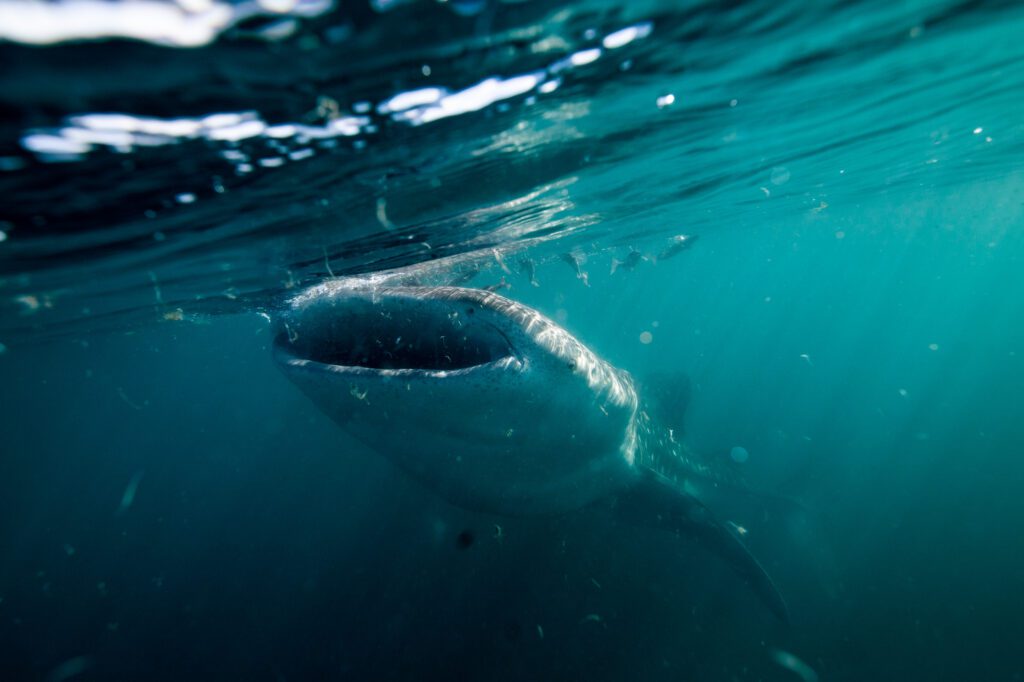
Protection of the La Paz Bay Refuge
The whale sharks of La Paz have gained notoriety in recent years, not only because of how unique this species is, but also because this is one of the few spots in the world where the tour operators, the government and NGOs work together to ensure its protection. Whale Shark Mexico is a research project focused on conservation, education and sustainable management of the charismatic whale sharks. They are responsible for a continuous monitoring program on the distribution and abundance of the species in the Gulf of California. More than 10 years of whale shark monitoring was key to establishing La Paz Bay as a critical habitat of the species, which needed to be protected. Whale sharks have been coming to this bay for thousands of years, and this is one of the few places in the world where whale sharks can be found as both juveniles and adult pregnant females.
A collaboration was created in 2009 with the Mexican government to implement a Code of Conduct for whale shark tour operators. Whale Shark Mexico trains the staff of the whale shark tour companies on the Code of Conduct as well as sharing monitoring results and injuries observed on the whale sharks. In 2018, they expanded on the collaboration with the Mexican government by creating a protected refuge for the whale sharks in the La Paz bay. The La Paz bay is a critical habitat for the whale sharks as well as many other species in the area: Check out their video of the Refuge.
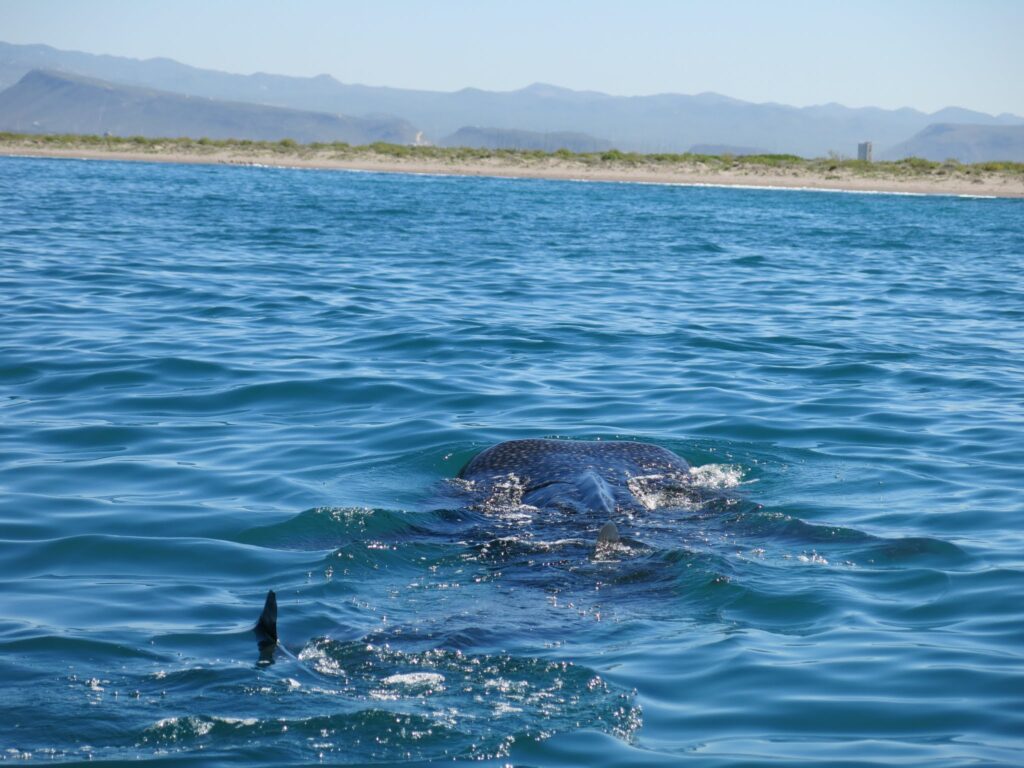
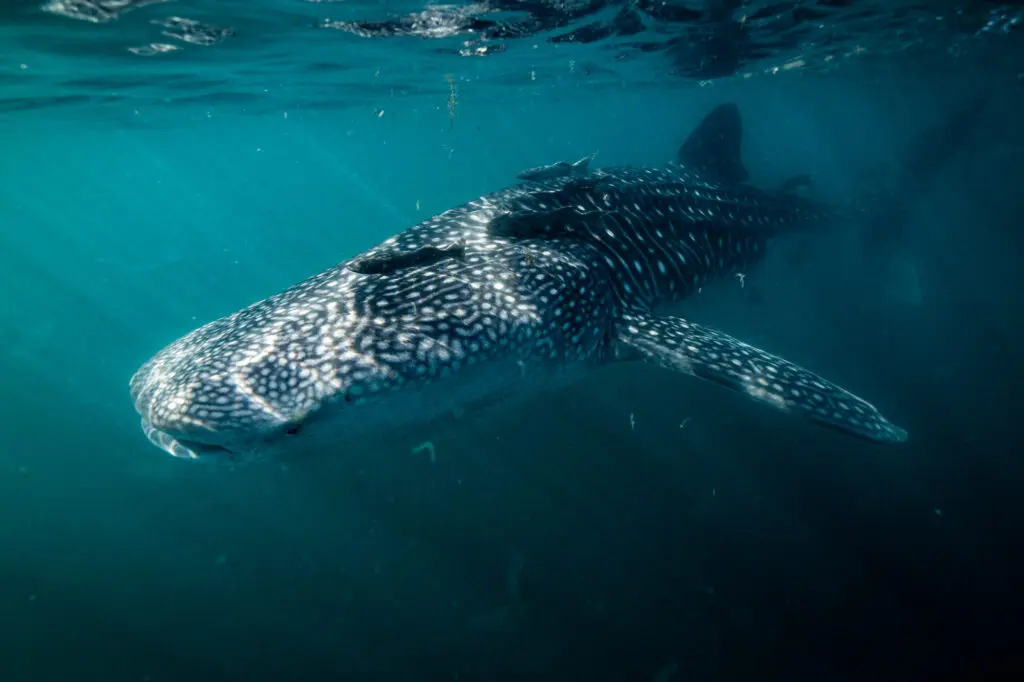
Minimizing Impact on the Whale Sharks
Whale sharks are endangered and their populations are decreasing throughout the world. Minimizing human impact on these gentle giants is critical, and we were thrilled to find out that La Paz Refuge has successfully managed to do this. They have even seen an increase in the whale sharks over recent years, unlike other areas of the world. A driving factor of their conservation success is that swimming with whale sharks in Mexico is a highly regulated activity to protect both the animals and the snorkelers. The rules for the whale shark tours are enforced by government observation towers in the bay. Because of these strict rules, Mexico is one of the best managed places in the world to swim with whale sharks. Some of these rules include:
- In order to start the season and allow the tour boats into the bay, there must be 6 or more whale sharks in the area.
- Only licensed companies are allowed to run whale shark tours in the bay, and there are a limited number of licenses distributed. Operators are authorized by Mexico’s environment ministry, Secretariat of Environment and Natural Resource.
- The number of boats allowed can never exceed the whale sharks, so if only 6 are observed then only 6 boats are allowed to enter the bay.
- The boats are capped at 14, no matter how many whale sharks are observed in the bay. A ballot system takes places each morning prevents overcrowding in the area. The maximum number of sharks vary every year but on peak season (January-February) we have had up to 50 whale sharks around!
- Only one boat can interact with a whale shark at a time to avoid overcrowding and allow breaks from human presence.
- Each boat can only stay in the bay for 3 hours.
- Only 5 people are allowed in the water with a whale shark at a time, but most tour boats limit it to 3 people.
How to Swim With Whale Sharks in Mexico
We chose MeXplore as our tour guide for our adventure snorkeling with the whale sharks in La Paz. They came recommended by fellow travelers, and are known for their ethical practices and commitment to conservation. This family owned business runs small group tours, and we love that they have a marine biologist guide on each tour. Here are some of the reasons that MeXplore is one of the best guide companies in La Paz.
Marine Biologist Guides
Our guide Carla was a marine biology student with an infectious enthusiasm for the ocean and its inhabitants. With the aid of a cute stuffed whale shark, she carefully broke down the dos and don’ts of interacting with these gentle giants. Her briefing was not just informative but also set the tone for the respectful whale shark encounters that lay ahead.
A Commitment to Conservation
One of the first things we noticed about MeXplore was their commitment to keeping the whale shark snorkeling La Paz experience personal and eco-conscious. In addition to going over all of the rules, conservation policies and etiquette with us, they were very respectful of the whale sharks and worked to minimize the impact on them. They allowed 3 of us at a time in the water with them, and when a whale shark swam off, they let it be and didn’t follow. The small number of people in the water at any given time made it a very personal and serene experience. It also underscored MeXplore’s dedication to the well-being of these animals and their natural habitat.
Eco-Conscious Exploring
The eco-conscious ethos of MeXplore was evident in every aspect of the tour, from the educational tidbits shared by Carla to the careful measures taken to minimize our impact on the marine environment. This thoughtful approach made our adventure feel even more special, knowing that we were experiencing nature without causing harm. Carla also had a Go Pro and was taking photos and videos of us in the water with the whale sharks, so we could just enjoy our experience swimming with the whale sharks without having to worry about taking pictures.
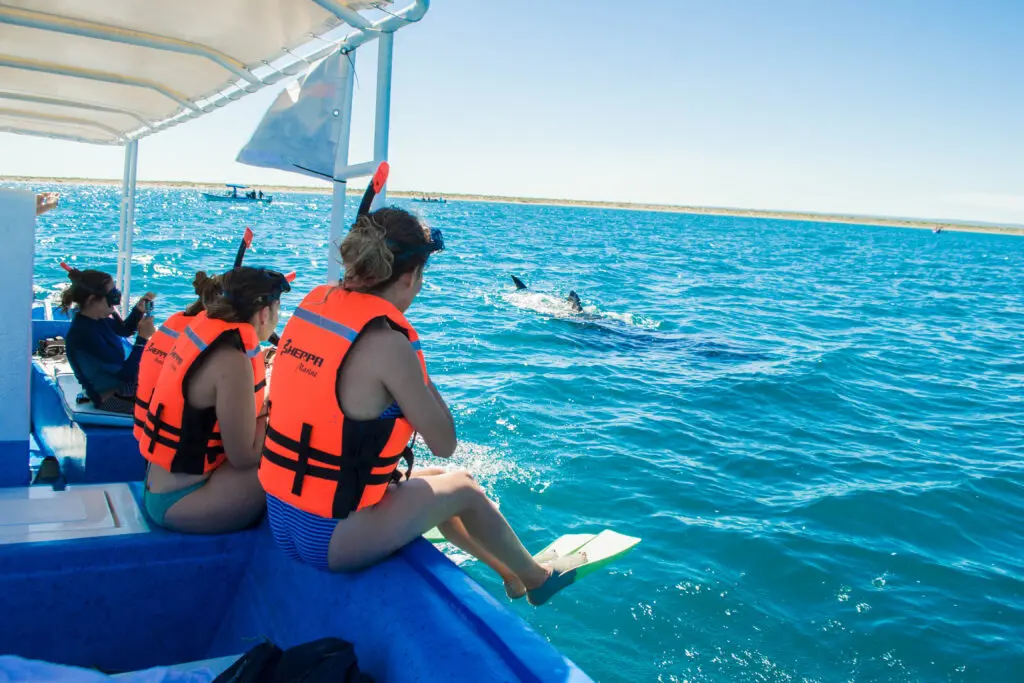
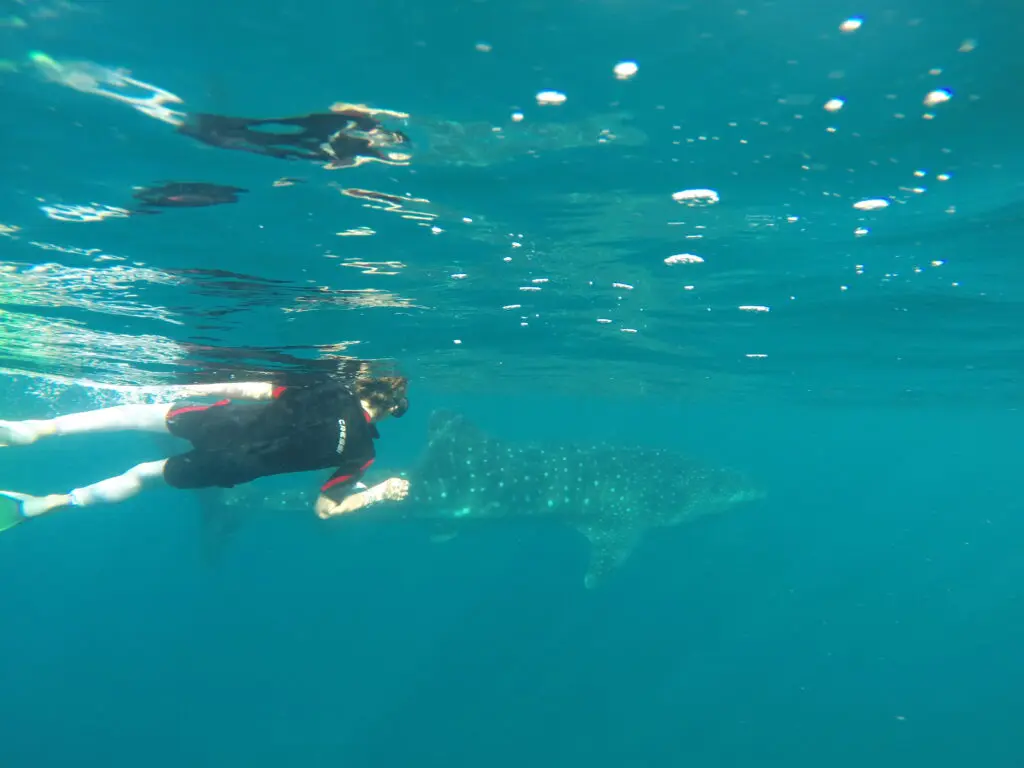
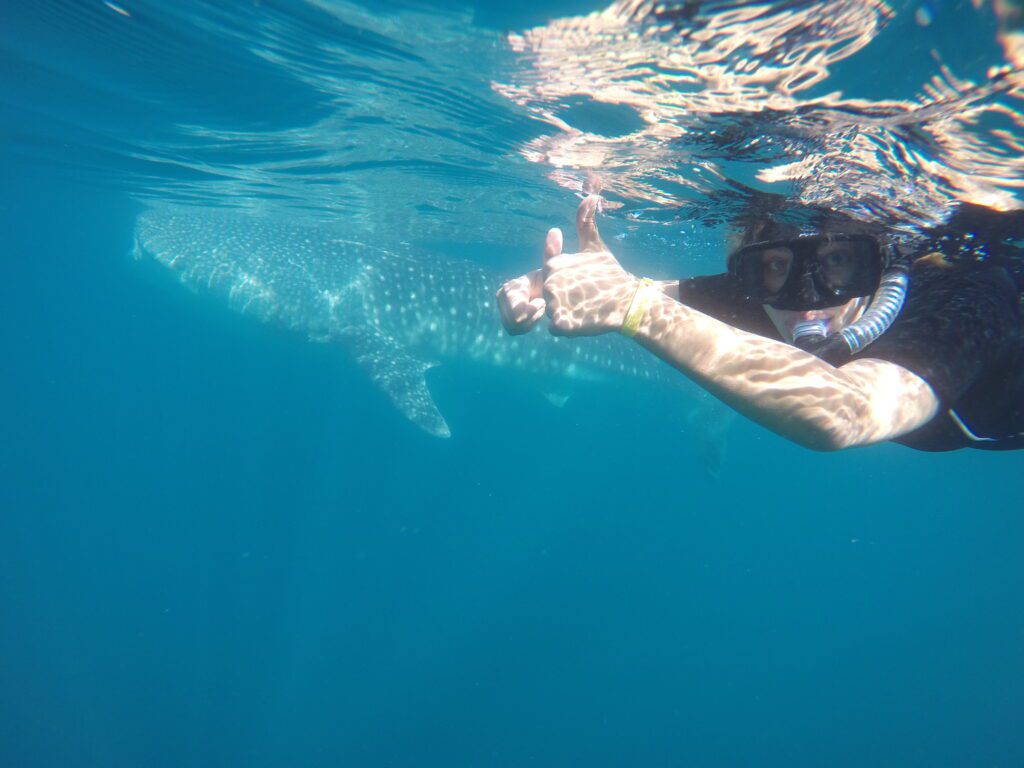
How to Choose a Swimming with Whale Sharks Tour
We highly recommend booking a whale shark tour with MeXplore. They are very focused on minimizing the impact on the whale sharks while teaching and having fun! Some of the other guides don’t put as much emphasis on education or conservation, and not all of the guides have marine biologists as guides.
If you are interested in learning more about these gentle giants, you can volunteer with Whale Shark Mexico and participate in citizen science on a day tour or research program. While you snorkel and swim with the whale sharks, you may be helping with whale shark tagging/sampling, ecological surveys, conducting whale sharks behavioral monitoring, contributing to database management and data analysis, and so much more.
Swimming with the whale sharks was an incredible experience that’s hard to put into words. We are thankful to MeXplore, Whale Shark Mexico and the Mexican government for working tirelessly to protect these majestic beings and allowing us to share their world for a morning.
When and Where to See the Whale Sharks in Mexico
Whale sharks frequent the La Paz bay in the winter months, typically between November and March, with February and March being the months with the greatest concentrations. Whale sharks can also be seen in the Yucatan Peninsula, typically from the cities of Cancun and Cozumel from mid-May to mid-September, but they frequent waters that are quite a bit farther out and require a longer boat ride than La Paz.
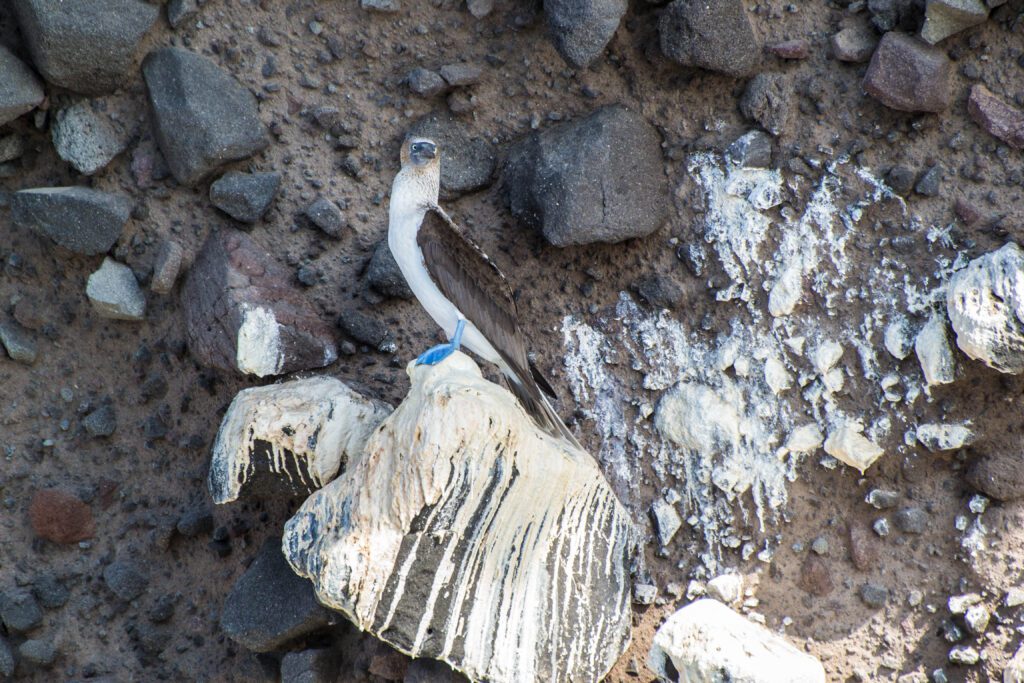
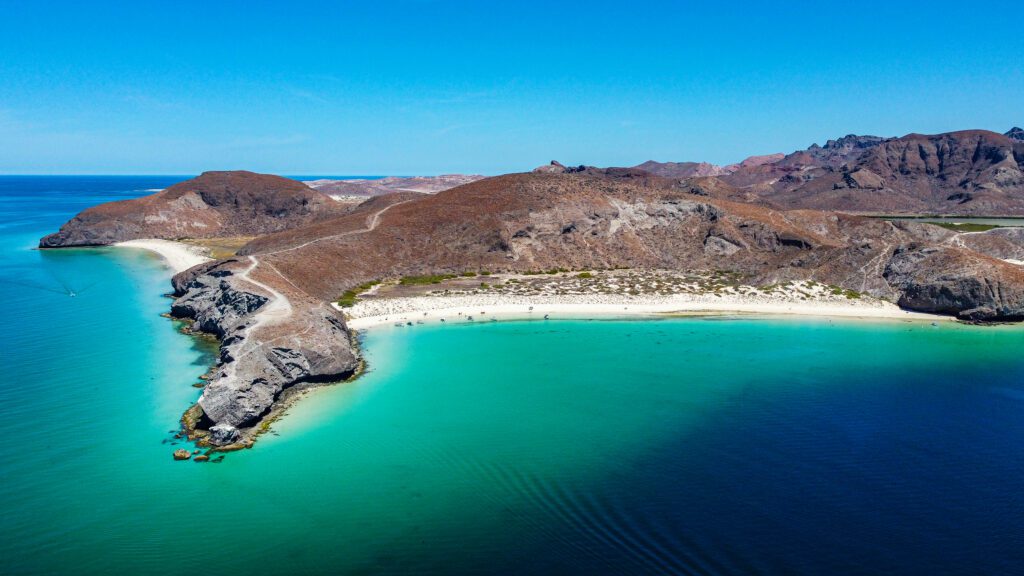
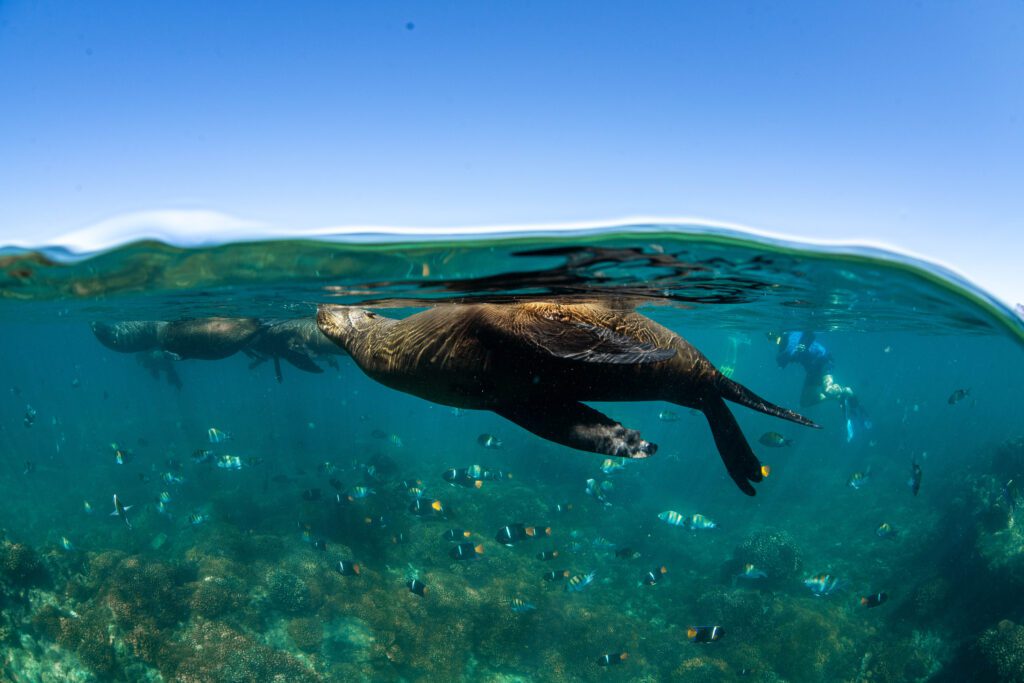
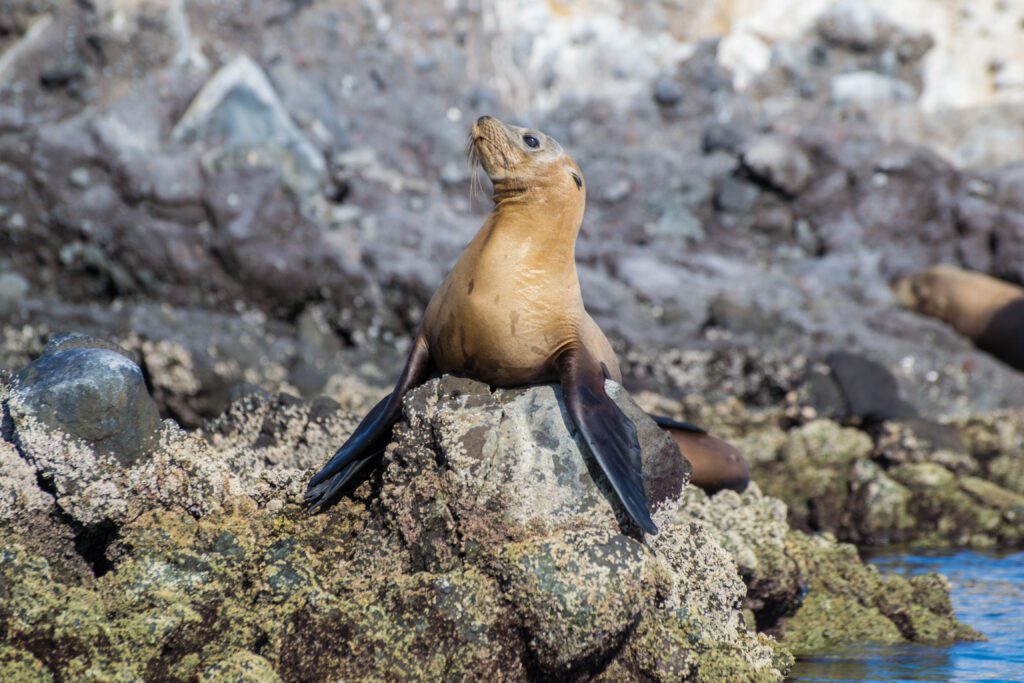
Other La Paz Outdoor Adventures
If you’re looking for more adventure in La Paz, MeXplore also runs trips that combine swimming with whale sharks with snorkeling with sea lions and a trip to the exquisite Playa Balandra. Or head out and explore Espiritu Santo Island, a UNESCO World Heritage site and the crown jewel of La Paz for snorkeling, beaches, and hiking trails.

